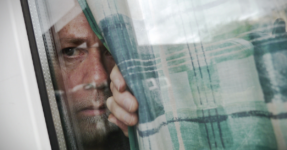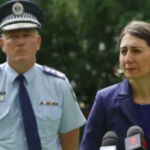Is it a Crime to Help Another Avoid Arrest or Conviction?

Wanting to help a close friend or loved-one is a natural inclination for anyone with a heart.
But when it comes to assisting a person evade being arrested or charged with, or convicted of, a criminal offence, your selfless deed could land you on the wrong side of the law.
In fact, there are many offences which are designed to deter people from helping those who are suspected or charged with criminal offences to avoid justice.
Here’s a rundown of some of the offences relating to accessorial liability.
Accessories after the fact
Being an ‘accessory’ to a crime essentially means you encouraged or assisted in the commission of a criminal offence at some point, whether before, during or after.
In relation to the latter, accessorial liability can arise when you were not directly involved in the commission of the offence itself, but intentionally assisted the offender, or another accessory, after the offence was committed.
This type of conduct is called being a “accessory after the fact”.
Generally, accessorial liability only applies to serious indictable offences, which are those that carry a maximum penalty of at least 5 years in prison.
However, section 351B of the Crimes Act 1900 (NSW) makes clear it is also an offence to aid, abet, counsel or procure the commission of a summary offence, which is one that is finalised in the Local Court rather than liable to being referred to a higher court such as the District or Supreme Court, and generally carries a maximum penalty of 2 years or less in prison.
Examples of accessorial liability
Common ways that a person could be considered an accessory after the fact, in other words, after the commission of an offence include:
- Hiding or concealing an offender from police,
- Helping with the destruction or concealment of evidence that may implicate an offender, and
- Giving false information to police with a view to diverting their investigations away from the offender.
Proof of knowledge
For a person to be convicted as an accessory after the fact, the prosecution is required to prove beyond a reasonable doubt that he or she knew the person they were assisting had committed the offence in respect of which the allegedly accessorial conduct occurred.
Just helping a person who has committed an offence is not enough to establish accessorial liability.
Maximum penalty
The maximum penalty for being an accessory after the fact depends on the crime committed by the offender.
In that regard, the law stipulates that:
- Every accessory after the fact to treason-related offences shall be liable to 2 years imprisonment (section 348 of the Act).
- Every accessory after the fact to murder shall be liable to 25 years imprisonment (section 349(1) of the Act).
- Every accessory after the fact to armed robbery, robbery in company or kidnapping shall be liable to 14 years imprisonment (s349(2) of the Act).
- Every accessory after the fact to any other serious indictable offence shall be liable to 5 years imprisonment (section 350 of the Act).
Offences against public justice
In addition to offences which apply generally to accessorial liability after the fact, the Act contains several additional offences relating to specific acts which have the potential effect of undermining the objective of achieving justice for the commission of crimes.
Perverting the course of justice
In that regard, section 319 of the Act makes it an offence to pervert the course of justice.
Section 312 of the Act defines perverting the course of justice as obstructing, preventing, perverting or defeating the course or administration of justice.
The offence carries a maximum penalty of 14 years in prison.
Examples of this broad offence can include lying to investigators, tampering with or destroying evidence or intimidating witnesses with a view to preventing the truth about a crime coming out.
Hindering an investigation
Additionally, section 315 of the Act makes it a crime punishable by up to 7 years in prison to hinder the investigation of a serious indicatable offence.
This offence applies to conduct which hinders:
- The investigation generally,
- The discovery of evidence, and
- The apprehension of suspects.
It is not an offence under this section merely to refuse or fail to divulge information or produce evidence.
Concealing offences
Further offences apply to the “concealing” of serious indictable offences.
In that regard, section 316 of the Act imposes criminal liability in circumstances where a person:
- Knows or believes that a serious indictable offence has been committed by another,
- Knows or believes that they have information that might be of material assistance in securing the apprehension of the offender or the prosecution or conviction of the offender for that offence, and
- Fails without reasonable excuse to bring that information to the attention of a member of the NSW Police Force or other appropriate authority.
A person will have a “reasonable excuse” for not bringing the information to police if the information relates to a sexual offence or a domestic violence offence where the alleged victim is an adult, and a person believes on reasonable grounds the alleged victim does not wish for the matter to be reported.
The maximum penalty for this offence depends on that which applies serious indictable offence committed by the other person. The maximum penalty will be:
- Imprisonment for 2 years if the maximum penalty for the serious indictable offence is not more than 10 years imprisonment.
- Imprisonment for 3 years if the maximum penalty for the serious indictable offence is more than 10 years imprisonment but not more than 20 years imprisonment.
- Imprisonment for 5 years if the maximum penalty for the serious indictable offence is more than 20 years imprisonment.
Further penalties apply for accepting “bribes” in exchange for concealing an offence.
Concealing child abuse offences
A separate offence also exists under section 316A of the Act for concealing a child abuse offence.
The elements of this offence are that an adult:
- Knows, believes or reasonable ought to know that a child abuse offence has been committed against another person,
- Knows or believes that they have information that might be of material assistance in securing the apprehension of the offender or the prosecution or conviction of the offender for that offence, and
- Fails without reasonable excuse to bring that information to the attention of a member of the NSW Police Force or other appropriate authority as soon as it is practicable to do so.
A reasonable excuse for not reporting a child abuse offence to authorities includes situations where:
- The person believes on reasonable grounds the information is already known to police.
- The person has already reported the information under standard child protection reporting obligations.
- The person has reasonable grounds to fear for the safety of the person (or any other person other than the offender) if the information were reported to police.
- The person obtained the information when they themselves were under 18 years old.
- The alleged offence involves a minor physical assault within schools by another school student, to which an education body is responding.
Again, the maximum penalty for this offence depends on that which applies to the child abuse offence committed by the other person.
The applicable maximum penalty is:
- Imprisonment for 2 years if the maximum penalty for the child abuse offence is less than 5 years imprisonment.
- Imprisonment for 5 years if the maximum penalty for the child abuse offence is more than 5 years imprisonment.
Need legal advice?
If you are concerned about how your conduct after another person’s commission of an offence may impact on you, call Sydney Criminal Lawyers anytime on (02) 9261 8881 for strictly confidential which will could mean the difference between landing yourself in court and ensuring you can get on with your life without adverse consequences to your reputation or livelihood.
Receive all of our articles weekly
Related Articles
RELATED LEGISLATION
- Section 315 Crimes Act 1900 | Hindering Investigations
- Section 316 Crimes Act 1900 | Concealing Serious Indictable Offence
- Section 316A Crimes Act 1900 | Concealing Child Abuse Offence
- Section 268.112 Criminal Code Act 1995 | Perverting the Course of Justice
- Section 319 Crimes Act 1900 | Perverting the Course of Justice
- Section 312 Crimes Act 1900 | Meaning of "Pervert the Course of Justice"
- Section 348 Crimes Act 1900 | Punishment of Accessories After The Fact to Certain Treason-Related Offences
- Section 349 Crimes Act 1900 | Punishment of Accessories After the Fact to Murder, Robbery or Kidnapping
- Section 350 Crimes Act 1900 | Punishment of Accessories After the Fact to Other Serious Indictable Offences






